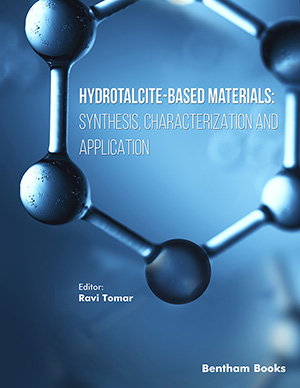
Current Analytical Chemistry
Title:Meet our Honorary Senior Advisor
Volume: 15 Issue: 5
Author(s): Weihong Tan
Affiliation:
Export Options
About this article
Cite this article as:
Tan Weihong , Meet our Honorary Senior Advisor , Current Analytical Chemistry 2019; 15 (5) . https://dx.doi.org/10.2174/157341101505190625123814
| DOI https://dx.doi.org/10.2174/157341101505190625123814 |
Print ISSN 1573-4110 |
| Publisher Name Bentham Science Publisher |
Online ISSN 1875-6727 |
Call for Papers in Thematic Issues
Advanced Nanomaterials and Nanocomposites: Controlled Synthesis and Applications for Bioanalysis
In recent years, a range of novel nanomaterials have been developed and found broad applications in various fields. By controlling the synthesis process and modifying the nanomaterials, novel properties and functions can be tailored to form nanocomposites. This thematic issue aims to highlight the latest advances in the preparation of ...read more
Advancements in Biomedicine, Corrosion Inhibition/Monitoring, and Lubrication of Carbon Dots
Carbon dots, a class of carbon-based nanomaterials, have garnered substantial interest in various scientific and engineering fields due to their unique properties, including excellent optical properties, outstanding biocompatibility, easy preparation, good dispersity, ultrasmall size, low toxicity and environmental friendliness. This special issue of Current Analytical Chemistry aims to showcase cutting-edge ...read more
Advances in Microfluidic and Sensing Technologies of Biofluids
Detection of biological fluids is an important means to assess human health and diagnose diseases. Currently, research on blood is relatively mature and widely applied in the medical field. With the development and advancement of microfluidic technology and novel detection methods, attention has turned to human physiological fluids such as ...read more
Analytical Methods for Environmental and Food Analysis
In recent years, the study of the chemical composition of food and the environment has depended on analytical methods in order to acquire information about the chemical composition, processing, quality control, and contamination of soil, water, air, plants, and foods. These aspects are very important for food safety and environmental ...read more
 19
19
- Author Guidelines
- Graphical Abstracts
- Fabricating and Stating False Information
- Research Misconduct
- Post Publication Discussions and Corrections
- Publishing Ethics and Rectitude
- Increase Visibility of Your Article
- Archiving Policies
- Peer Review Workflow
- Order Your Article Before Print
- Promote Your Article
- Manuscript Transfer Facility
- Editorial Policies
- Allegations from Whistleblowers


























